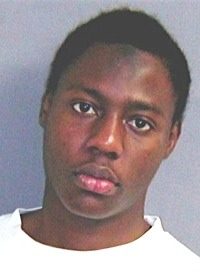
The Nigerian suspected of attempting to bring down Northwest Flight 253 over Detroit on Christmas Day reportedly met with the expatriate radical cleric whose fingerprints are being discovered all over the corpus of terror in America. Anwar al-Awlaki is an American-born Islamic imam with recognizable ties to al-Qaeda in Yemen and he admitted to a freelance journalist that he indeed met with Umar Abdulmutallab, the man formally charged with attempting to kill almost 300 passengers and crew with a chemical bomb secreted into his underwear. The transcript of the interview the journalist conducted with Awlaki reveals that Abdulmutallab and the fugitive fundamentalist met last fall in Yemen.
The tone and content of that conversation is unknown, however, and Awlaki denies participating in any way in the Christmas Day attack. This is the same shade of denial issued in the days following the mass murder committed at Ft. Hood, Texas, by Major Nidal Hasan, a psychiatrist who corresponded electronically with Awlaki for nearly a year prior to opening fire on November 5, 2009.
Awlaki may not have encouraged Hasan’s rampage, but he lauded his disciple after the deed was done. Awlaki described Hasan as a “hero” and declared that the only justification for a Muslim serving in the American armed forces was if it was for the purpose of following in Hasan’s footsteps.
What role Awlaki may have played in the run-up to the Detroit Christmas Day attack is unclear and the Yemeni-based cyber-cleric did little to define his relationship to Abdulmutallab. He did, however, retrace familiar steps of praising those who would murder innocent Americans after the fact. “Umar Farouk is one of my students; I had communications with him,” Awlaki tells the reporter, “And I support what he did, as America supports Israel’s killing of Palestinians, and its killing of civilians in Afghanistan and Iraq.”
This admission verifies statements made by Yemeni government officials who, since the Christmas Day attack, have maintained that Abdulmutallab had communicated with Awlaki during the Nigerian’s sojourn in Yemen. There was additional intelligence that Abdulmutallab met with leaders of the so-called “Al-Qaeda in Arabia,” the local branch of the wider terrorist network that immediately claimed responsibility for the narrowly avoided bombing.
Abdulelah Hider Sha’ea is a Yemeni freelance writer who has contributed to al-Jazeera and other publications and has worked as a researcher for the Saba Center for Strategic Studies based in his home country. It is believed that Mr. Sha’ea is the only reporter to have personally interviewed the leaders of Al Qaeda’s Arabian arm. After their meeting, the group posted photographs of their leader, Nasser al-Wuhayshi, posing with Sha’ea.
On the tape Sha’ea has played for Western reporters, Awlaki is heard to say that while he had no part in the planning of the plot to bomb the American airliner, he was proud of Abdulmutallab’s effort to strike Americans in their homeland. “I did not tell him to do this operation, but I support [it],” Awlaki claims. Again, as with Hasan, Awlaki disavows any strategic or tactical role in the killings (or attempted killing), but proclaims loudly how commendable are the actions committed by the culpable.
Awlaki’s sense of his own influence is evident in his “exhortation” to fundamentalists Islamic scholars to go beyond their renunciation of American military activity in Yemen and to explicitly call for the death of any American official or soldier known to be giving aid or intelligence to the government of Yemen. As has been reported in The New American and elsewhere, America ramped up its presence in the small nation on the Arabian Peninsula in recent weeks in response to al-Qaeda’s blossoming in the dessert on the country’s western frontier.
Yemeni armed forces have been trailing Awlaki since his arrival in his adopted home country. In fact, as soon as he stepped off the plane in Yemen, law enforcement escorted him directly from the airport to prison, where he spent 18 months for fomenting terrorism. After his release, Awlaki fled to the desolate Shabwa Province known to be the refuge for tribes of radicals devoted to terrorizing the West and Western sympathizers in their own country.
Admittedly, the government of has a difficult time asserting any sort of dominion over the disparate confederacy of tribes living in the most remote regions of the country. For that reason, Awlaki recognized a hospitable climate and turned up the volume on his virulent anti-American strain of Islam. The message is at once menacing and magnetic. The rumor is that the preacher has attracted a growing number of acolytes eager to devour his dogma and regurgitate it, spewing death over the unsuspecting and innocent.
In an effort to silence Awlaki and disable the junta of tribes and terrorists that give him aid and comfort, on Christmas Eve, the Yemeni air force bombed a house they believed to be the site of a meeting of al-Qaeda leadership, including Awlaki. Given the fact that Awlaki’s voice is heard on Sha’ea’s tape applauding Abdulmutallab, the strike was unsuccessful.
Photo: AP Images



